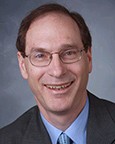Bundle: International Law: Norms, Actors, Process , Fifth Edition and International Law: Selected Documents, Seventh Edition
Bundle: International Law: Norms, Actors, Process , Fifth Edition and International Law: Selected Documents, Seventh Edition
Print Bundle - This bundle includes both print and digital versions of ISBN 9781543804447as well as a print version of SBN 9781454875659.
More about International Law: Norms, Actors, Process, Fifth Edition:Written by some of the leading International Law scholars in the nation, International Law employs a unique problem-based approach to examining international issues. Using real-life case studies as teaching problems, the text explores the processes for making and applying international law, with an interdisciplinary approach that goes beyond mere doctrinal explanation.
Bundle also includes International Law: Selected Documents, Seventh Edition.
Product Information
Bundle: International Law: Norms, Actors, Process , Fifth Edition and International Law: Selected Documents, Seventh Edition
Connected eBook Print Bundle


